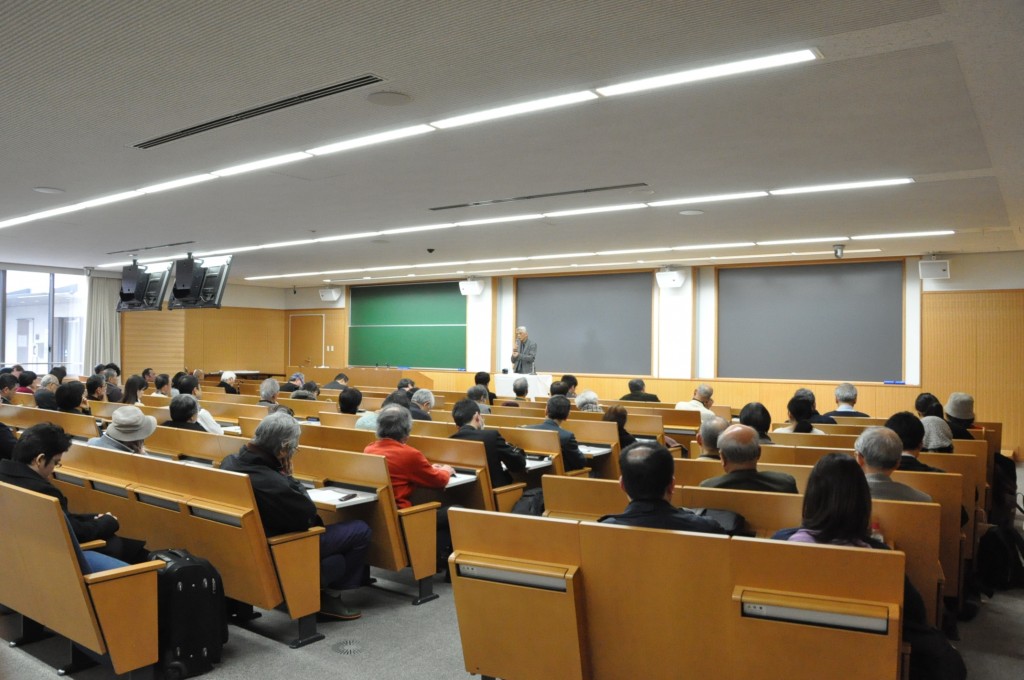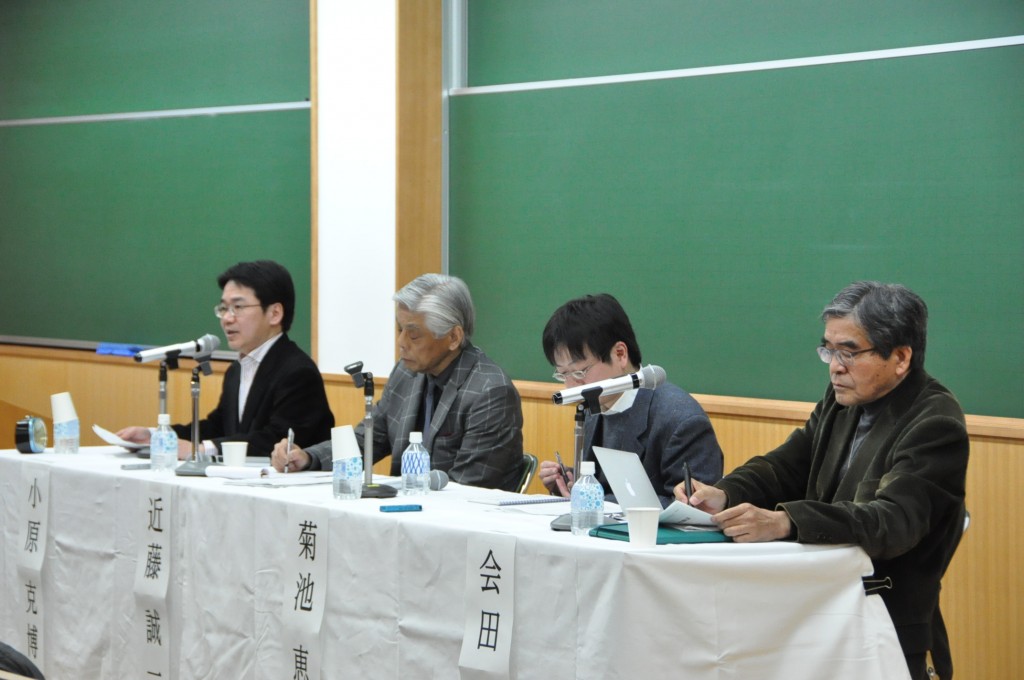Center for Interdisciplinary Study of Monotheistic Religions(CISMOR)Doshisha University
> Public Lectures > Can the religious dignity coexist with freedom of expression? : Based on the recent assaults in Paris and CopenhagenPublic Lectures
Can the religious dignity coexist with freedom of expression? : Based on the recent assaults in Paris and Copenhagen
| Date: |
2015/03/14 13:00-15:30 |
|---|---|
| Place: | RY107 (Ryoshinkan 1st floor), Imadegawa Campus, Doshisha University |
| Lecture: |
Seiichi Kondo (Visiting Professor, Doshisha University) Keisuke Kikuchi (Associate Professor, Doshisha University) Hirotsugu Aida (Editorial Writer, Kyodo News) |
| Summary: | |
|
Dr. Kondō asserted that this incident should be understood within the historical context of the past 100 years. With the introduction of modernity approximately 400 years ago, liberal democracy came to be understood as the final pursuit for humanity to aspire to. However, incidents have occurred in recent years that cast doubt on this assumption. Europe prides itself on having created and practiced this ideal, as well as developed its economy. It appears that this has taken root as a form of European supremacism. While colonialism is the most conspicuous example of this and is now rejected, this racism exists in people’s hearts and sometimes is expressed. In contrast, the people of Africa, the Middle East, and Asia have humiliating histories under colonial rule. A strong feeling of victimization by Western domination occasionally appears. For example, developing countries are increasingly frustrated that the registration of World Heritage Sites are overseen by the United Nations Educational, Scientific and Cultural Organization (UNESCO), a group that attempts to cultivate human qualities and peace through education, and favors developed countries. Western liberal democracy is materialistic and appears to reject spirituality and religion. Were these events not an expression of this, coupled with cries for freedom of expression? Liberal economics and democracy maintain that it is positive for individuals to fulfill their desires, and that competition increases happiness through the efficient use of resources. This led to the development of the world economy, but the moral aspect of responsibilities that accompany morality has not been addressed. Thus, distrust and despair towards the supposed ideal of liberal democracy occurred, and it appears that this is a cause of young people in developed countries being drawn towards the Islamic State of Iraq and the Levant (ISIL). While radical terrorism should be thoroughly criticized, there is also a need to consider issues within liberal democracy. Japan, which has a relativistic way of thinking, can play a role in addressing Europe’s universalist tendencies. Dr. Kikuchi reconsidered whether this incident was really an attack on freedom of expression. Charlie Hebdo was a leftist newspaper founded in 1968 that criticized authorities and attempted to fight sexual taboos. However, in the 2000s, it changed course and Islam became its target. In response to its critics, the newspaper claimed to carry on the tradition of satire that has existed since the French Revolution, and also criticized other religions. In France, the 1972 anti-racism law was passed; freedom of speech is not absolute. In other words, the issue is not a conflict between civilizations over freedom of expression, but the existence of a double standard where speech is not allowed for certain people in France. Satire is accepted by society based on whether or not it criticizes authority. In this context, the issue is who is depicting whom in what context. The context of these incidents is international and addresses the unsymmetrical power relationship between the West and non-West, and domestic society in which Islamophobia is rampant. Based on this, one could say that this incident was a case of bullying in the name of freedom of expression. The reason that Islamophobia spread in Europe was due to increased class disparity (in the background of globalization), the upsurge of anti-immigration (in the background of increased disparity), and the problem of Islam that arose from competition over votes due to the rise of the far right. Amidst the economic crisis from the 1970s onwards, it was created by the state and the media to deflect the nation from more essential problems. A European anti-foreign discourse took a Western liberal form, where secularism, gender equality, and the freedom of expression are upheld as universal values, which are then used for exclusion. Charlie Hebdo was accepted because it provokes debate not by using the word “race” but by emphasizing cultural differences. Mr. Aida then provided comments on the presentations, noting that Europe and the U.S.’s modern treatment of religion differs, and that the question of modernity in the U.S. and Europe appears to be an example of the self-correcting power of modernity. While terrorism and oppression in response to free speech and expression are unacceptable, it should be noted that free speech is surrounded by issues such as the freedom of others and public order. From this perspective, the form it should take has emerged as an issue (including its relationship to the separation of church and state). Furthermore, there is a need to reconsider whether or not satirical images are an issue of religious dignity. While judging by seeing is a very important part of news broadcasts, it is unfortunate that most newspapers in Japan refrained from printing these satirical images without any discussion of the issue; the reason for this judgment should be presented to readers. Subsequently, Prof. Kohara mediated a panel discussion and there was a lively question and answer session with the audience. Tomoki Asaka Postdoctral Fellow, CISMOR |
|

